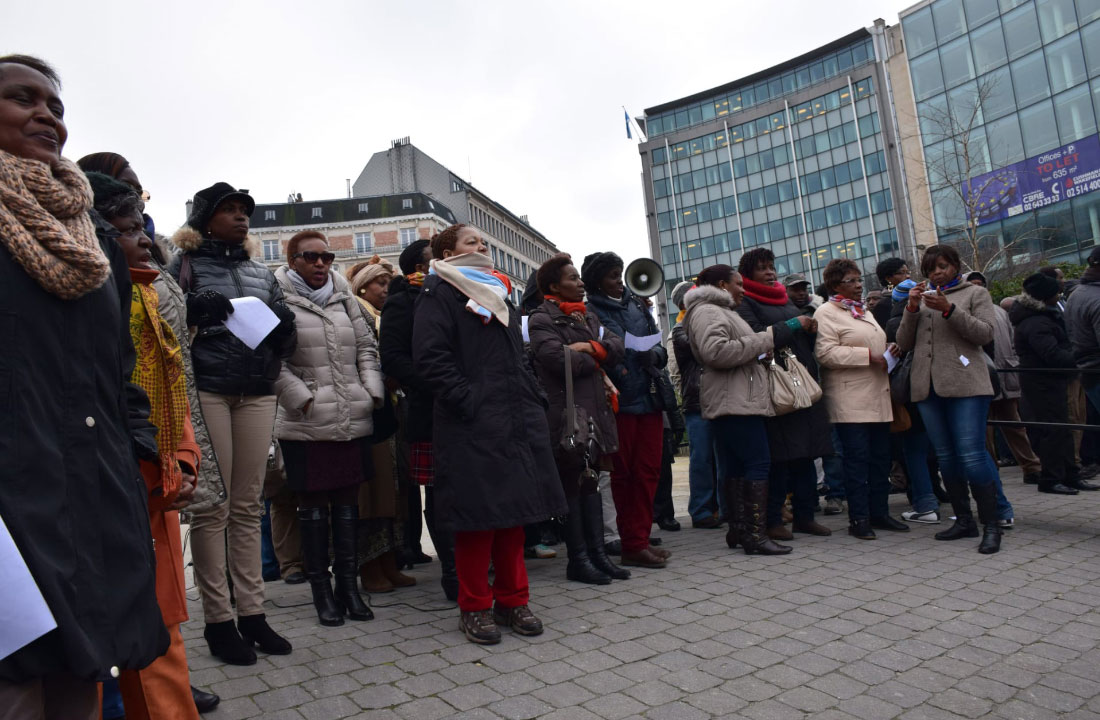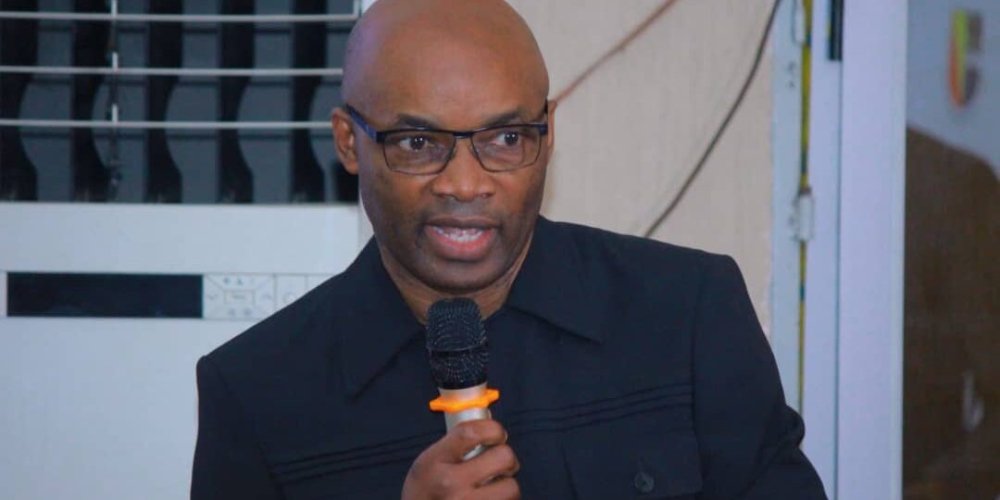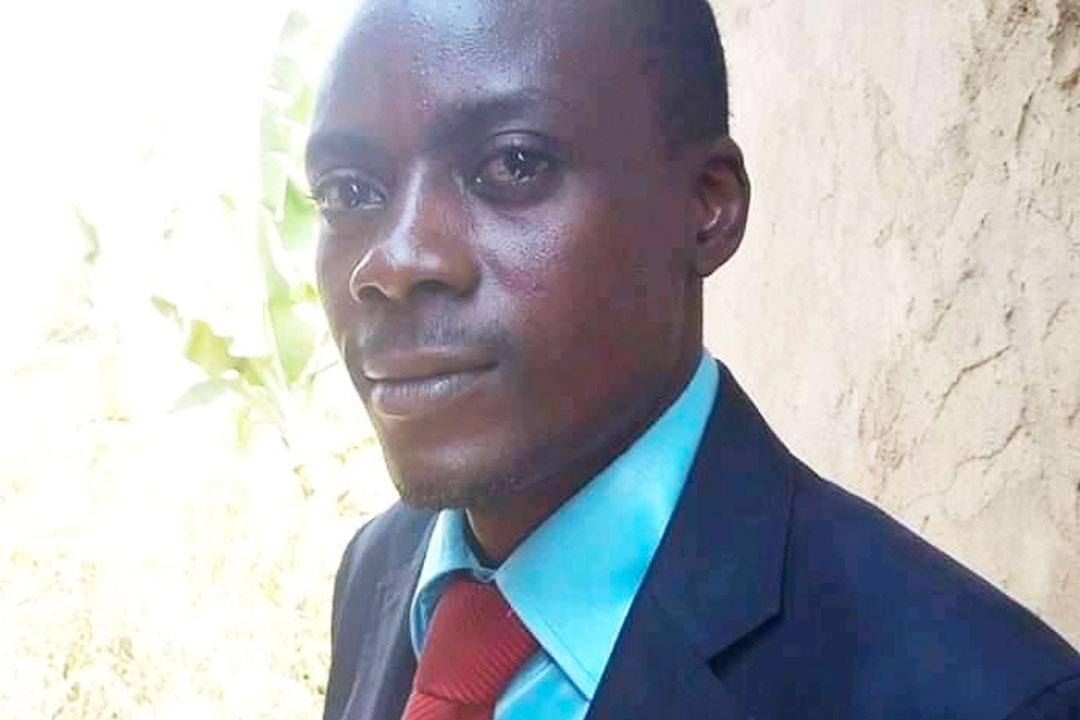Being Hutu has become more and more politicized. The Rwandan government has created a well-scripted story that distinguishes the ‘real’ victims from the perpetrators. That story was promoted and politically implemented through laws such as the National Identity Policy and the Punishment of Crime of Genocide Ideology. Called Negative Diaspora, today’s Hutu communities in Diaspora are caught in between their love for their country of origin and over twenty years of an unacknowledged sense of victimhood.
Seen as supporters of the previous Hutu government and consequently, enemies of the current government, Hutus in diaspora have been double labeled and stigmatized. The first label is a vestige of the narratives of the 1994 genocide. Through generations, the idea of a bad seed or evil actor has stopped new generations from being actively involved in community issues for fear of facing the narrative of perpetration. The second label is imposed onto them by the current policy that suppressed the ethnic identity to promote political labeling. Yet these new political categories are still founded on ethnic divisions. Therefore, the Hutu diaspora communities have created their own narratives of survival. They have done so through the construction of competing narratives that enabled them to deal with their own trauma. Still, being in diaspora is a constant reminder of the tragic past they are still facing.
Dealing with the Hutu identity
Through the study of trans-generational identity shifts, I have explored how Hutus see themselves in relations to their community, their homeland (Rwanda), their host-country (Belgium), and most importantly, how they have been able to deal with their trauma. This article is based on two-months of research conducted in Belgium. Guided by concepts such as identity formation, trauma, diasporic consciousness, and coping mechanisms, I intended to understand what it means to be Hutu in today’s diasporic society as well as how the new generations understand and deal with their family’s tragic past.
It has been very difficult, especially for the new generations, to call themselves Hutus. Many have decided to reject or ignore that part of who they are. “I don’t see myself as more Rwandan than Dutch or Belgian. I know I am because of my parents, but it does not define me,” said one young lady. In reaction to the social pressure that is often imposed onto a community, the younger generations have created radical responses to the narrative of Hutu perpetrators and decided to break from it.
Others have decided to embrace this painful past and find ways to deal with it. For them, accepting their Rwandan and Hutu identities has become a way to acknowledge their family’s suffering and more importantly, it has allowed them to talk about their victimhood. “Among my numerous identities, the Rwandan is the strongest; sadly, I cannot embrace it… yet my Hutu identity has influenced my life in particular ways.” Being a Hutu is more than belonging to a group, it is accepting the tragic past, fighting for recognition, and hoping for a bright future.
These two ways to dealing with traumatic identity transformation show the complexity of the Hutu diasporic consciousness. Living in Belgium has not been easy for many. As Diaspora, their assimilation process has not fully succeeded.
“Because I am black, people always ask me where I am from. I usually just say Rwanda, but then the famous questions are always asked. ‘Are you Hutu or Tutsi?’ And ‘Aren’t the Hutus the bad people who one day decided to kill their neighbors?’ Without even wanting it, I am labeled and classified by ‘other.’’
They have experienced social categorization by the official narrative of the genocide and historical stigma that say that every Hutu is guilty of genocide due to group homogeneity. Consequently, the idea of belonging somewhere is complicated by their identity struggle. Many do not feel completely integrated and accepted in Belgium but being a Hutu in Rwanda is often not seen as a good alternative. They are caught in between two societies that have judged and labeled them as the ‘other.’ In Belgium, they are too dark skinned to belong and in Rwanda, they are seen as genocidaires, genocide sympathizers, and/or dangerous to the country’s stability.
Caught in-between
Despite all of this, home still holds an important place in the diaspora communities. As a mother explained, “20 years ago, I lost my home. Now, I have a normal life here in Belgium, a family and a good job, but yet, I still feel empty inside because there is nothing better than home.” Having a place to call home is a basic need for many. For Hutus, the notion of home and/or homeland, this magical place where one feels safe, has a challenging, paradoxical connotation. Their Rwanda, once known and loved, has changed, and left a sour taste for many families. Now, their country is promoting reconciliation at a price: the denial of their victimhood and acceptance of a guilty verdict. As a father mentioned:
“Home, where is home? Rwanda has taken away our pride, our heritage, and our loved ones. President Kagame has rebuilt the country on the blood of innocent Hutus, so how can I call Rwanda my home? Yet, it seems like I am [a] thorn. It is in my heart; it is who I am. My Rwanda might be not the same as before, but Rwanda is still the place [where] my parents taught me my values, and principles. Rwanda is the heritage I want to leave for my children.’’
Although Rwanda is a source of pain, it still is part of who they are. That is where many have learned the meaning of life, love, and family. That is where they call home and where their love and lost ones rest.
Within this tension that surrounds the notion of home, the idea of victimhood has crystalized the division. The question here is, ‘If the real and only victims of the 1994 Rwandan genocide are Tutsi, why have so many Hutus have lost family members?’ By not recognizing the Hutu suffering, the single-sided narrative of the genocide has reinforced the pain and trauma many still experience. In order words, many have lost loved ones and struggle with their lack of recognition. “What about my loved ones who were murdered? Because I am not Tutsi, I cannot be called a victim,” said a young woman. These normative narratives of victim and perpetrator, combined with the idea that all Hutus are guilty, have shaped how the new generations see themselves and how they understand their community.
Therefore, the current Hutu diaspora community in Belgium is trying to make sense of its own sense of self and narratives, and fighting against what they see as unjust stigmatizations imposed on them by President Kagame’s regime. Alienated by the official narratives and policy of the current Rwandan government, many have decided to find ways to assimilate into Belgian society and forget about their pain. Yet, an increasing number of Hutus, seen and treated as the wrong kind of diaspora by Kagame’s regime, have created an identity that is in opposition to the current government. In addition, like a self-fulfilling prophecy, they created counter-narratives that are, for many of them, rightly founded. Being and accepting their ‘Hutuness’ has in itself been a political act. They aimed to show that they know who they are and won’t allow anyone to define and rewrite their history, identity, and future.
Claudine Kuradusenge
Jambonews





